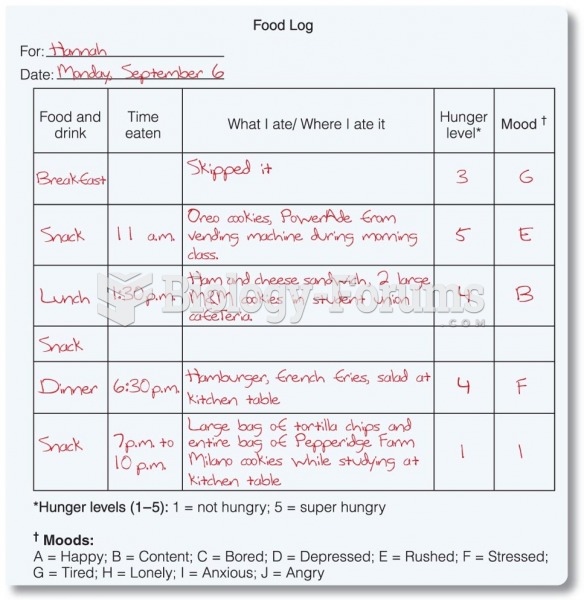Answer to Question 1
When calorie intakes are reduced, cancer rates fall. In animal experiments, this caloric effect proves to be one of the most effective dietary interventions to prevent cancer. It is also true that when a population's calorie intake rises, cancer rates rise in response; excess calories from carbohydrate, fat, and protein all raise cancer rates.
The type of fat in the diet may influence cancer promotion or prevention. Studies of colon cancer implicate animal fats but not vegetable fat, and although a number of studies suggest that omega-3 fatty acids from fish may protect against some cancers, others do not support such findings.
Processed meats may be of special concern. They contain additives, nitrites or nitrates, that contribute a pink color and deter bacterial growth in meats. In the digestive tract, nitrites and nitrates form other nitrogen-containing compounds that may be carcinogenic.
Grilling meat, fish, or other foodseven vegetablesover a direct flame causes fat and added oils to splash on the fire and then vaporize, creating other carcinogens that rise and stick to the food. Smoking foods has the same effect. Eating these foods, or even well-browned meats cooked to the crispy well-done stage, introduces carcinogens into the digestive system. A steady diet of foods containing significant amounts of these toxins can increase cancer risk.
Limit intake of fried foods such as French fries and potato chips, which contain acrylamide. Acrylamide is produced when certain starchy foods, such as potatoes, are fried or baked at high temperatures. In the body, some acrylamide is metabolized to a substance that may mutate or damage genetic material.
Fiber may protect against cancer by binding, diluting, and rapidly removing potential carcinogens from the GI tract; alternatively, other constituents of fiber-rich foods, such as the phytochemicals of whole grains or the nutrients of fruits and vegetables, may be at work.
Folate plays roles in DNA synthesis and repair; thus, inadequate folate intakes may allow DNA damage to accumulate. Vitamin E, vitamin C, and beta-carotene warrant attention. Once cancer is established, such antioxidants may do more harm than good.
Answer to Question 2
The DASH diet is a diet rich in fruits, vegetables, nuts, whole grains, and low-fat milk products and low in total fat and saturated fat. Compared to the typical American diet, the DASH eating plan provides more fiber, potassium, magnesium, and calcium; emphasizes legumes and fish over red meat; limits added sugars and sugar-containing beverages; and meets other recommendations of the report of the 2015 Dietary Guidelines Advisory Committee.







